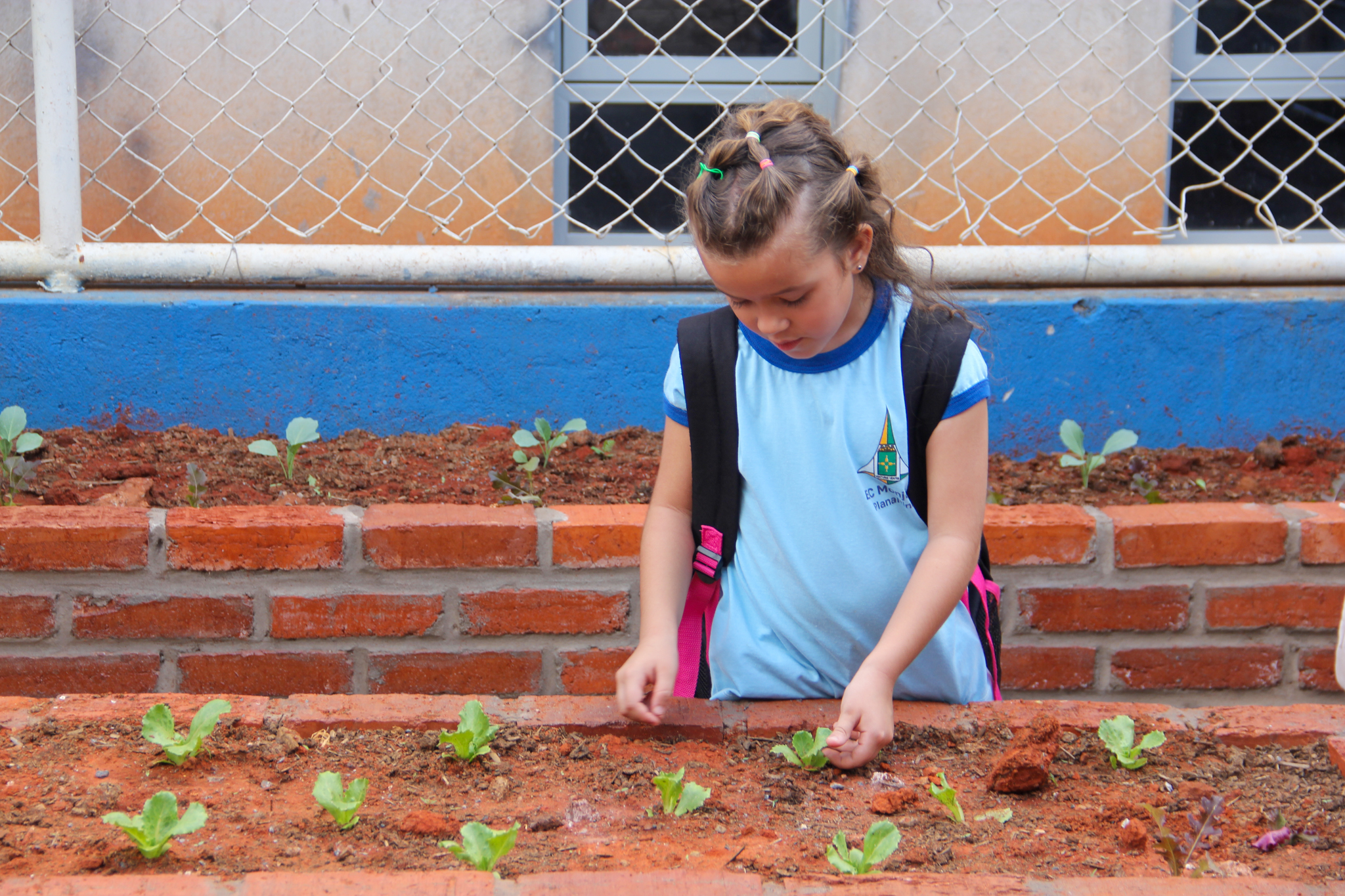
On 5 June, World Environment Day, the World Food Programme (WFP) Centre of Excellence against Hunger in Brazil reinforces the importance of school feeding as a strategic tool to promote more sustainable, healthy and inclusive food systems.
Successful experiences, such as the National School Feeding Programme (PNAE) in Brazil, show how public policies can strengthen family farming, guarantee food and nutritional security for students and, at the same time, protect the environment. The requirement that at least 30 per cent of the PNAE’s resources be earmarked for the direct purchase of family farming products encourages more sustainable agricultural practices, promotes the local economy and reduces the emissions associated with food transport.
Another example of good practice is the school gardens, which have been consolidated as spaces for learning about food cultivation, respect for nature and the importance of food diversity. As well as enriching school meals with fresh produce, the gardens encourage healthier eating habits and strengthen environmental and food education.
School meals are also an opportunity to reduce food waste in canteens and kitchens by raising awareness about responsible consumption, making full use of food and, in some cases, even composting organic waste.
“School feeding is much more than a meal: it is a powerful ally in transforming food systems. It connects local and sustainable production with conscious consumption, training generations that are better prepared to face the environmental challenges of our time,” says Daniel Balaban, Director of the WFP Centre of Excellence against Hunger in Brazil.
Within the framework of South-South Cooperation, the Centre of Excellence works to share Brazil’s experience in school feeding with various countries in Africa, Asia and Latin America, promoting integrated solutions that contribute to eradicating hunger, improving nutrition and promoting more sustainable food systems.
On this World Environment Day, the Centre of Excellence reaffirms its commitment to actions that unite food security and environmental protection, helping to build a fairer, healthier and more sustainable future for all children and adolescents.




